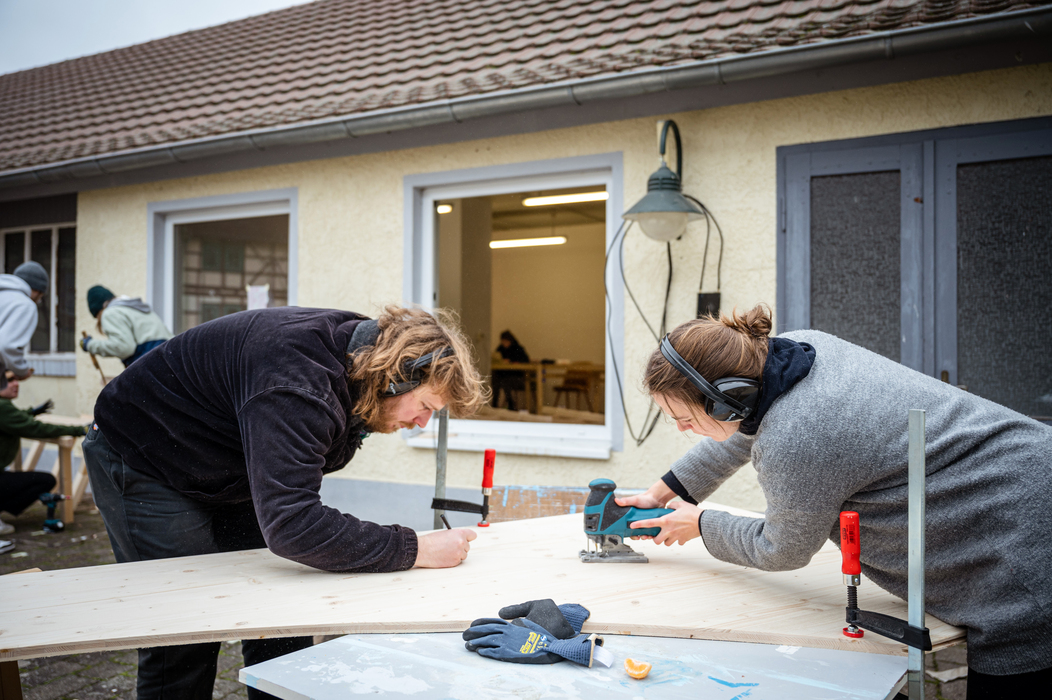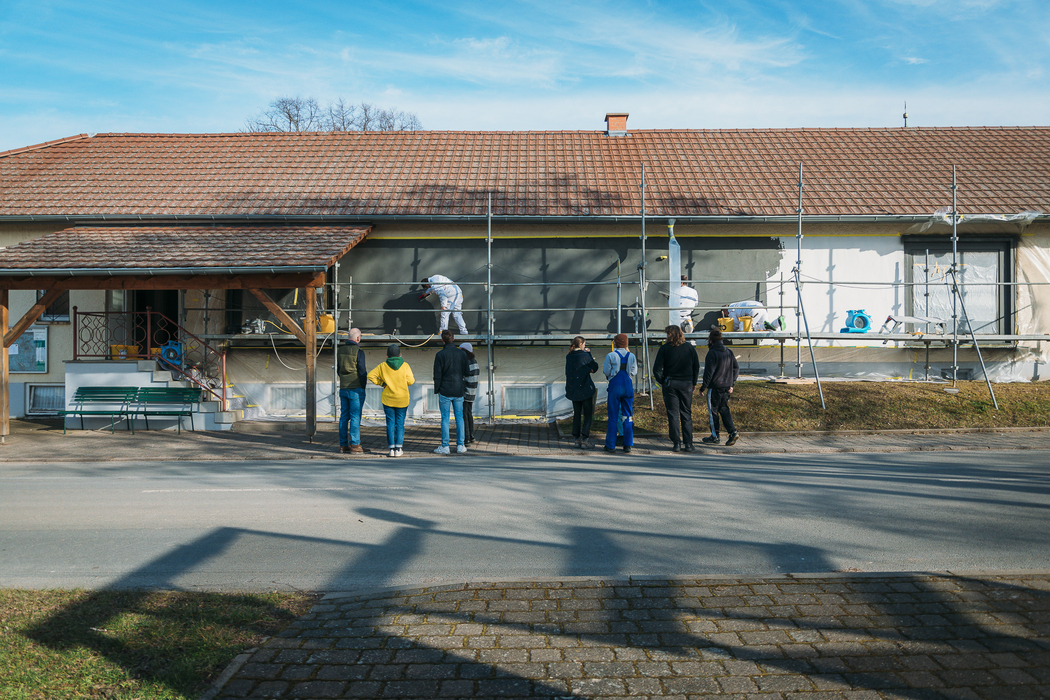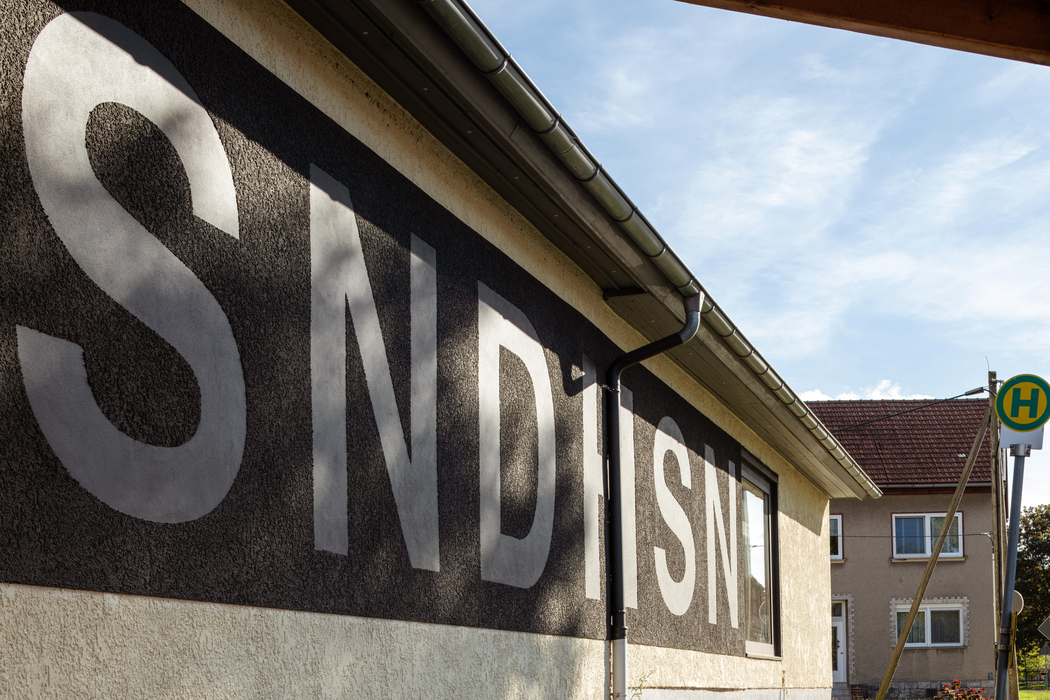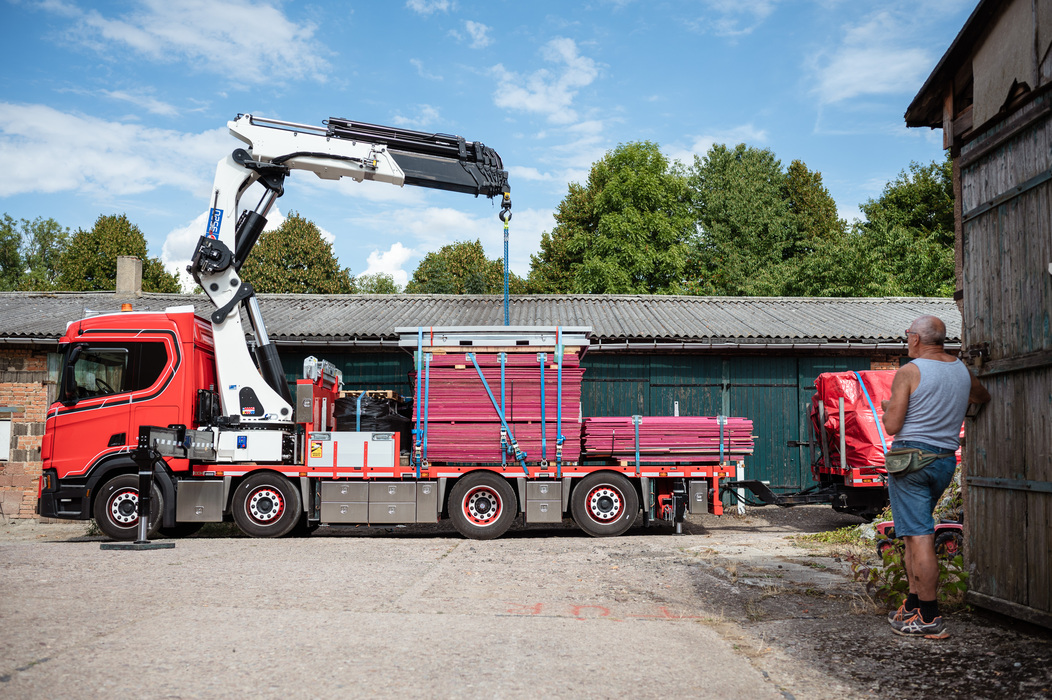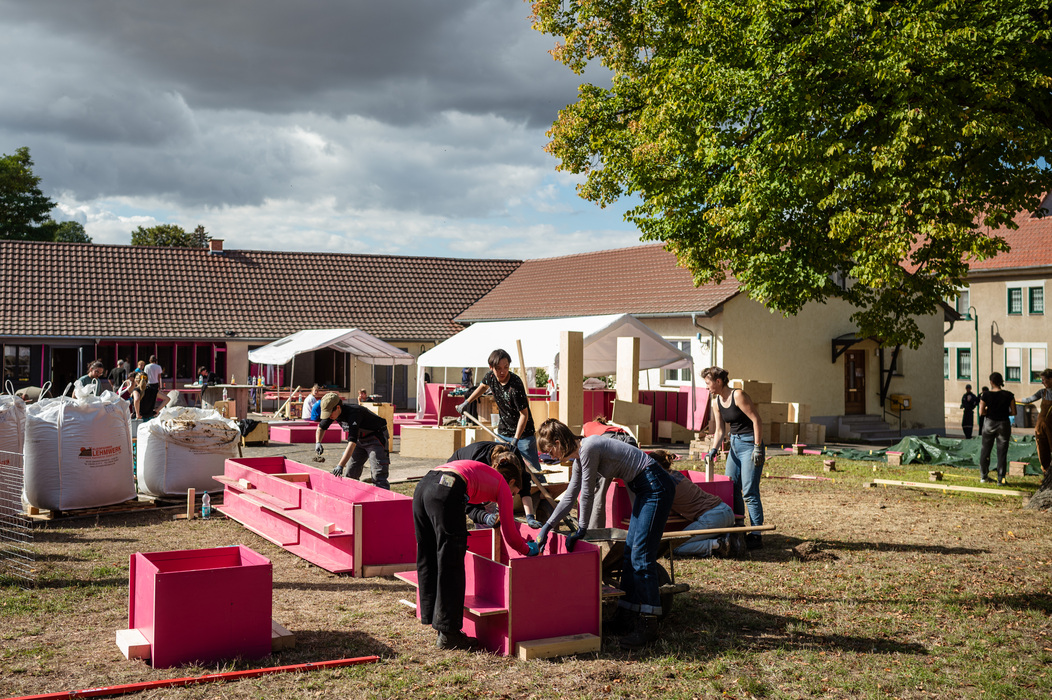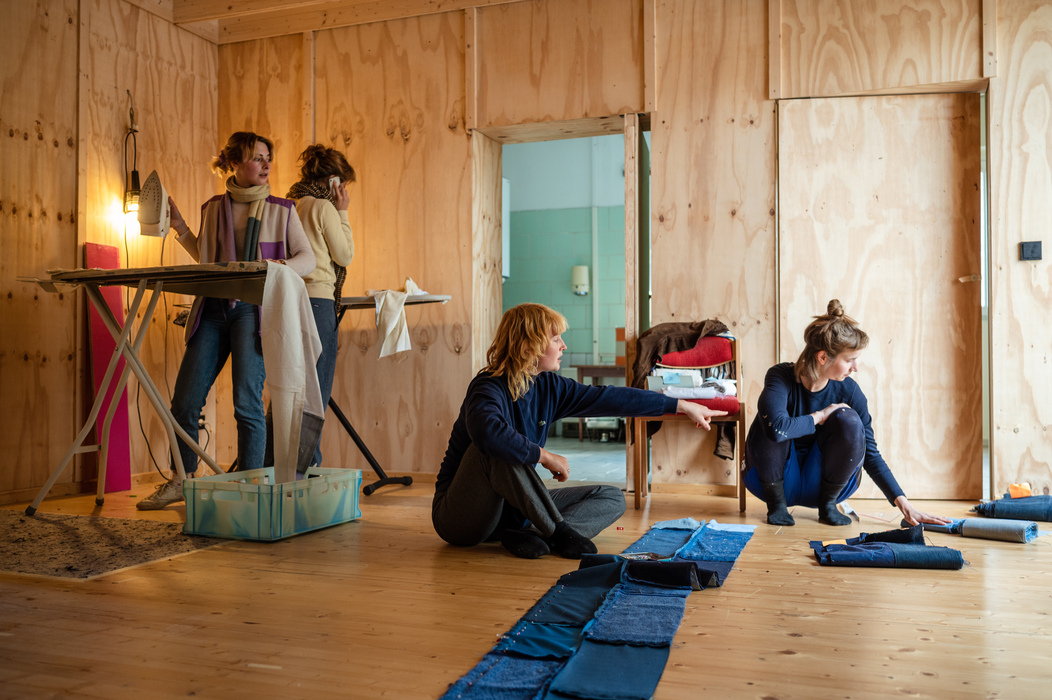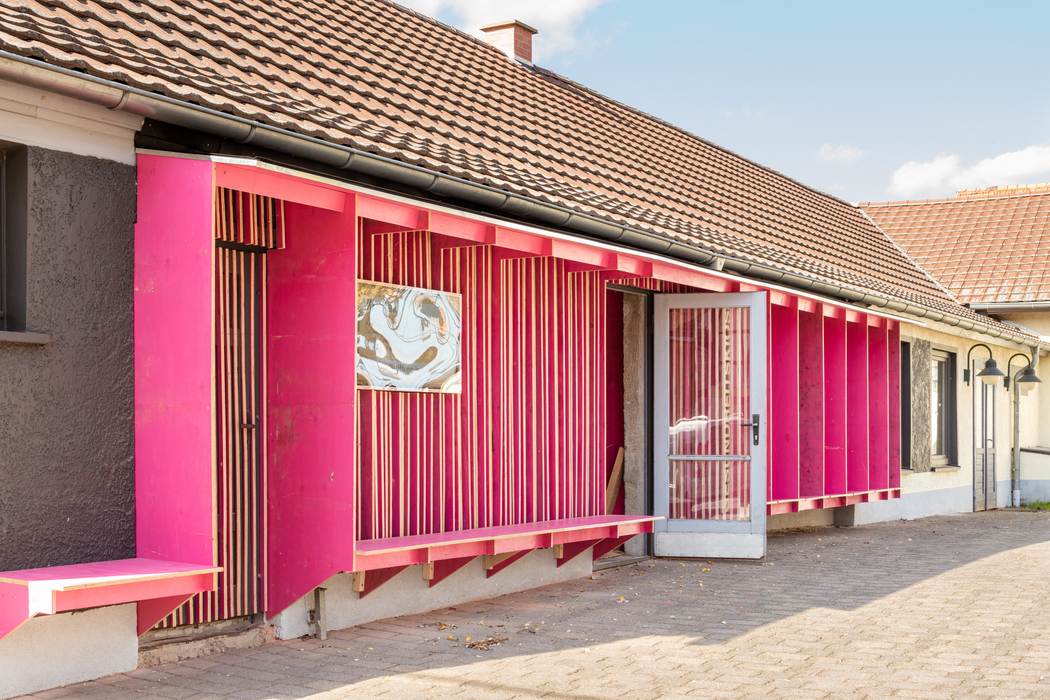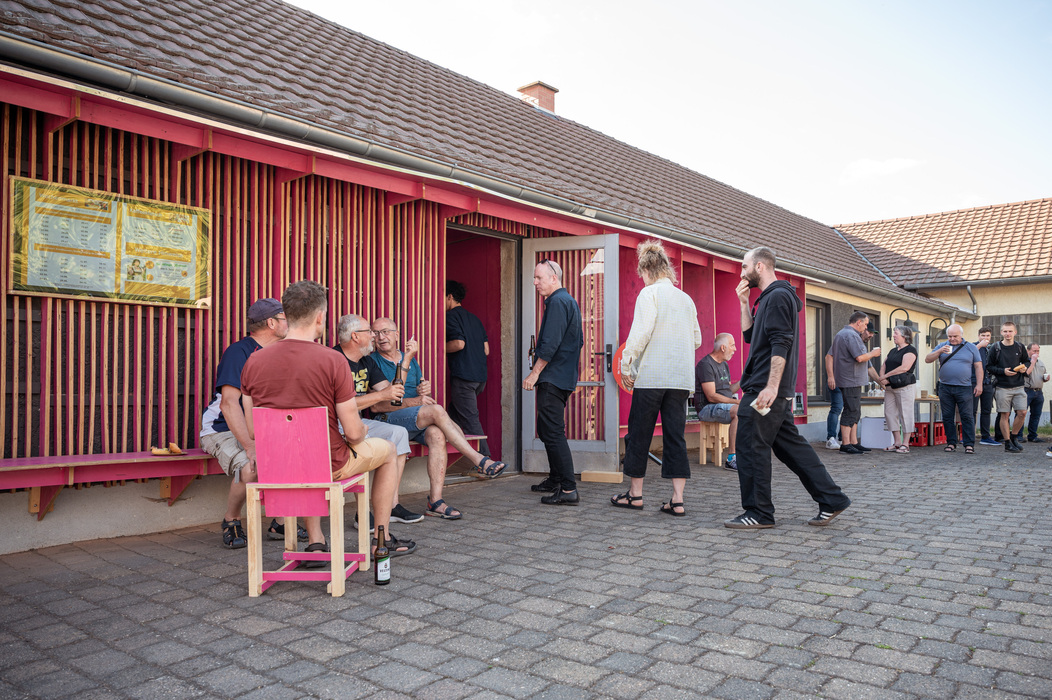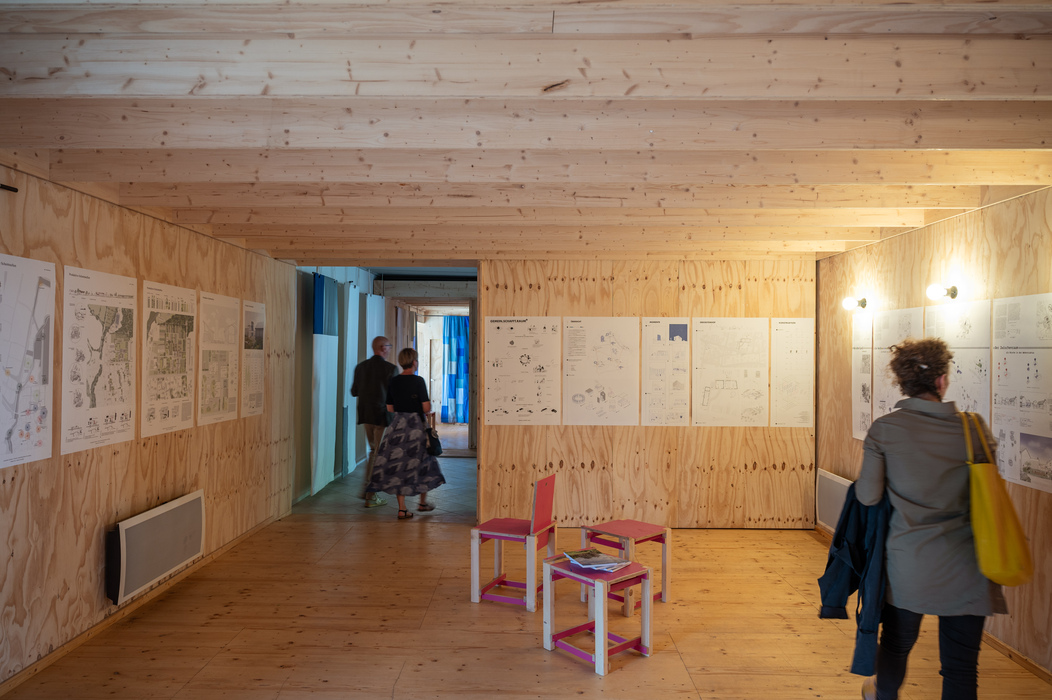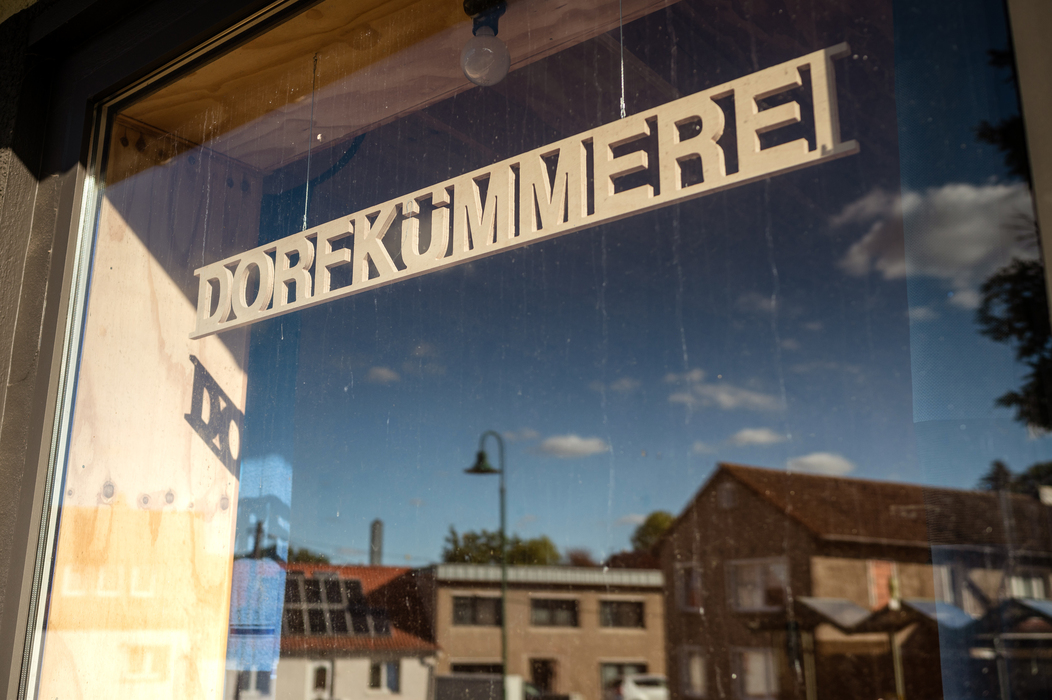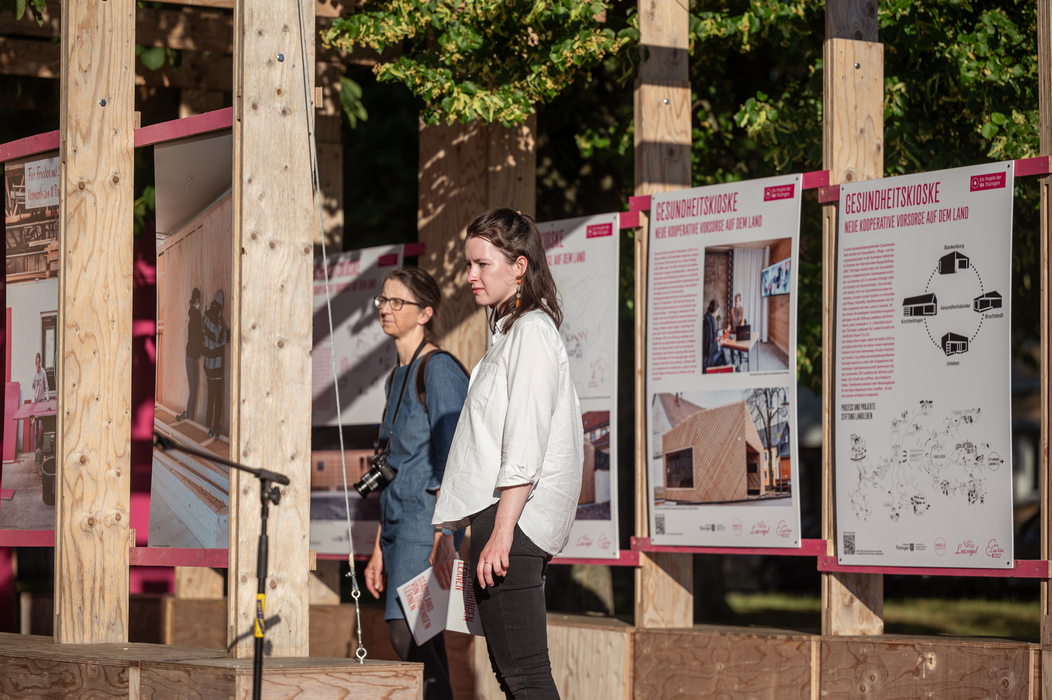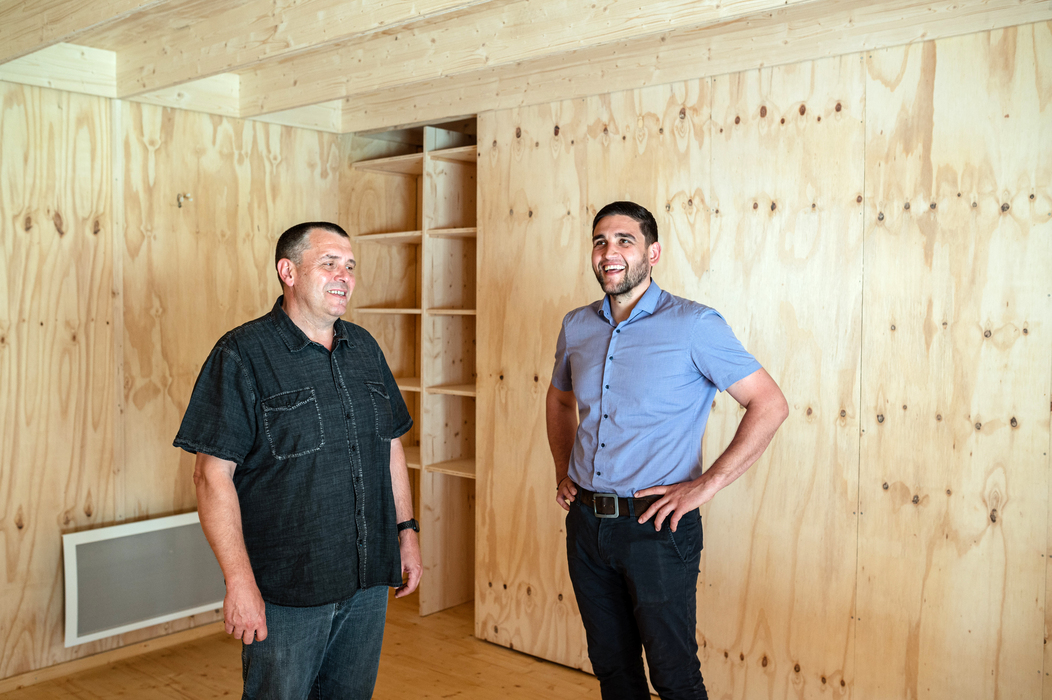Country Center
⸺ Collective Renovation in the Countryside
The rural areas across many regions face structural and demographic changes, including the Sundhausen community in the Thuringian village region of Seltenrain. Particularly, larger infrastructures like community centers, restaurants, and shops are often vacant or underutilized in central locations. The social healthcare infrastructure developed in the Seltenrain region presents a new opportunity for these vacant old infrastructures. Moreover, by reintroducing service offerings in these areas, they become more appealing for not just young individuals but also for newcomers.
The community-wide foundation, Landleben and its associated organization, Landengel e. V., are establishing a new health, care, and service network in the Seltenrain village region. This includes health kiosks and rural center in Sundhausen, offering health services and facilities under one roof. The building, previously used as a village store, is being climate-friendly and resource-efficiently transformed through a collaborative construction process, emphasizing the reuse of materials within the building material cycle. This construction process serves as an educational example, showcasing how impulses can emerge in structurally and financially weak regions through a collective building process.
The Landzentrum's development involves the transformation of two locations. The former village store, unused for several years and owned by the Sundhausen municipality, has been the focus of development since 2021. Together with local partners and the IBA Thuringia, the Department of CODE / Design and Building Construction at the Technical University of Berlin organizes a construction process supported by the Sto Foundation. This building workshop format (Bauhütte) gathers all participants, trades, and producers involved in the construction from the outset, promoting holistic education while solving complex tasks collaboratively to achieve the best possible result. This approach fosters the exchange of expertise among individuals involved in the construction, a characteristic reminiscent of historical construction guilds, albeit adapted to modern, smaller-scale projects. Building, regardless of scale, has become a highly complex endeavor, posing disproportionate challenges, especially for smaller architectural projects.
The goal of the construction process in Sundhausen is to achieve the smallest possible intervention with the greatest possible impact. Not only the refurbishment of the existing structure but also the extent of the intervention determines its sustainability value. The use of renewable materials like wood and a climate-friendly energy concept form the basis of the box-in-box architectural solution. The existing building is defined as a shell within which individual wooden modules are placed. This reorganizes the spaces and functions, allowing for flexible subdivisions and access through wall adjustments. The timber frame construction with wood fiber insulation creates a new indoor climate with minimal interventions. Heating is provided by infrared heaters, and future plans include solar power generation. Five building workshops were conducted within a year, with the fifth one in September 2022 featuring international participation. Alongside the Technical University of Berlin, institutions like the Technical University of Delft, Veldacademie Rotterdam, Technical University of Vienna, Catholic University of Santiago de Chile, Bauhaus-University Weimar, AG TUN — Textile & Sustainability, and painting vocational schools from across Germany sent educators, students, and apprentices to Sundhausen. Approximately 50 guests participated in construction activities and lived among the 370 residents of Sundhausen.
Alongside international support, Het Nieuwe Instituut Rotterdam donated material from the temporary pink wooden roof, designed by the architectural firm MVRDV, for reuse in the rural center by Stiftung Landleben. The Veldacademie Rotterdam also sent wooden modules of a mobile theater to Thuringia. Additionally, the project participants put out a call to the Seltenrain region to collect textiles for reuse. These collected materials were used not only for constructing the interior but also for redesigning the exterior space of the rural center and the transitions between both areas.
Since spring 2022, the rural center has been actively used as a town hall, community office, and association hub. Additional spaces are being prepared for a new model of a rented doctor's practice. The future operator of the health kiosks and the rural center is Gesundes Landleben GmbH, established in October 2022 by Stiftung Landleben and OptiMedis AG.
Orte
Projekt sponsor
Cooperation partner
- Gemeinde Sundhausen
- Agrargenossenschaft e.G. Kirchheilingen
- Gesundes Landleben GmbH
- OptiMedis AG
- Partner:innen des Landengel e. V.
Financial support
collaborative construction process: Technische Universität Berlin, Fachgebiet CODE, Technische Universität Delft, Veldacademie Rotterdam, Technische Universität Wien, Fachgebiet Städtebau, Katholische Universität Santiago de Chile, Fakultät Architektur, Bauhaus-Universität Weimar, Professur für Landschaftsarchitektur und Landschaftsplanung, AG TUN — Textil & Nachhaltigkeit, vocational schools from Germany as well as students and trainees from the participating institutions
Funding for the collaborative construction process: Sto-Stiftung, Essen, Internationale Bauausstellung Thüringen GmbH
Feasibility study for land centre: Atelier Fanelsa with L.I.S.T. Stadtentwicklungsgesellschaft GmbH, Berlin
Funding for the collaborative construction process: Sto-Stiftung, Essen, Internationale Bauausstellung Thüringen GmbH
Feasibility study for land centre: Atelier Fanelsa with L.I.S.T. Stadtentwicklungsgesellschaft GmbH, Berlin
- Project presentation November 2022
- Article Baunetz 2022
- Artcle Baunetz Campus 2022
- Article Bauhandwerk 5.22
- Interview with Frank Baumgarten (Stiftung Landleben) and Christopher Kaufmann (Landengel e.V.) in IBA Magazin 8
- Article ›Gemeinsam Machen - Kooperative Vorsorge auf dem Land‹ im IBA Magazin 2020
- Article Planungspraxis regionaler Initiativen und interkommunaler Kooperation - Neue Materialien zur Planungskultur Nr. 41
- ›Engagiert fürs Dorf‹, Interview mit Frank Baumgarten im IBA Magazin 2019
- IBA Logbuch, Stand 2019

